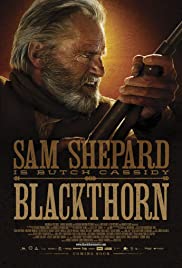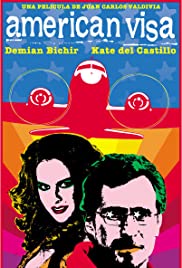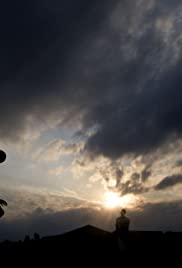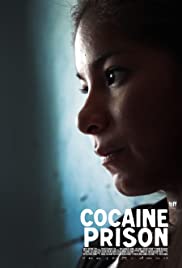Bolivia

In 1934, Bolivia is at war with Paraguay. Liborio and Ticona and other Bolivian indigenous soldiers are lost in the hell of the Chaco, under the commandment of German Captain Kundt. They’re looking for the Paraguayan enemy that they haven’t seen for months, and that they will never find. They leave together in a search that will make them realize, progressively, the destiny they have been pushed into and the inevitable condition of a defeated troop. They’re walking like shadows, wandering forever in the middle of dust and silence.

A poor girl, a rich stud, a university student and a model — nothing in common, except the desire to experience true intimacy. Their stories unfold and overlap as each becomes victim to their own sexual dependencies, self-perceptions and illusions. Thematically structured around issues of femininity, masculinity, virginity, rape and sexuality, each teen struggles to make sense of their own identity, reaching for ideals that represent everything they feel they are supposed to be, but are not.

A community reacts against a group of foreigners who under the guise of development assistance are forcibly sterilizing the peasant women.

An introvert city teenager is sent to his father’s limber ranch. While trying to figure out his place as the son of the boss he finds himself in a world packed with naturalized violence.

In the Bolivian altiplano, Virginio and Sisa, an elderly Quechua couple who have lived a quiet life for years, face an impossible dilemma during an unusually long drought: resist or be defeated by the hostile environment and the relentless passage of time.

In Bolivia, Butch Cassidy (now calling himself James Blackthorne) pines for one last sight of home, an adventure that aligns him with a young robber and makes the duo a target for gangs and lawmen alike.

After being denied an American visa, a Bolivian professor becomes involved in a web of criminal activities, holds-up the American consulate and falls for a beautiful prostitute from the Bolivian lowlands.

Away from professional stadiums, bright lights, and manicured fields, there’s another side of soccer. Tucked away on alleys, side streets, and concrete courts, people play in improvised games. Every country has a different word for it. In the United States, we call it “pick-up soccer.” In Trinidad, it’s “taking a sweat.” In England, it’s “having a kick-about.” In Brazil, the word is “pelada,” which literally means “naked”—the game stripped down to its core. It’s the version of the game played by anyone, anywhere—and it’s a window into lives all around the world. Pelada is a documentary following Luke and Gwendolyn, two former college soccer stars who didn’t quite make it to the pros. Not ready for it to be over, they take off, chasing the game. From prisoners in Bolivia to moonshine brewers in Kenya, from freestylers in China to women who play in hijab in Iran, Pelada is the story of the people who play.

A vampire film with “altitude”. Winner of 9 awards in 2013 from the Beverly Hills Outlook! The year is 1805, the city of Nuestra Señora de La Paz lives in fear of an invasion from the indigenous population, and – within its walls – a rebellion is brewing against the Spanish crown. If this were not enough, a beautiful vampire is terrorizing the population, leaving a bloodbath in her wake. A young Irish spy, on a mission for the rebels, is found near the body of a victim. She is captured, accused of the murders, publicly flogged and sentenced to die by garrote.

From inside Bolivia’s craziest prison a cocaine worker, a drug mule and his little sister reveal the countries relationship with cocaine.